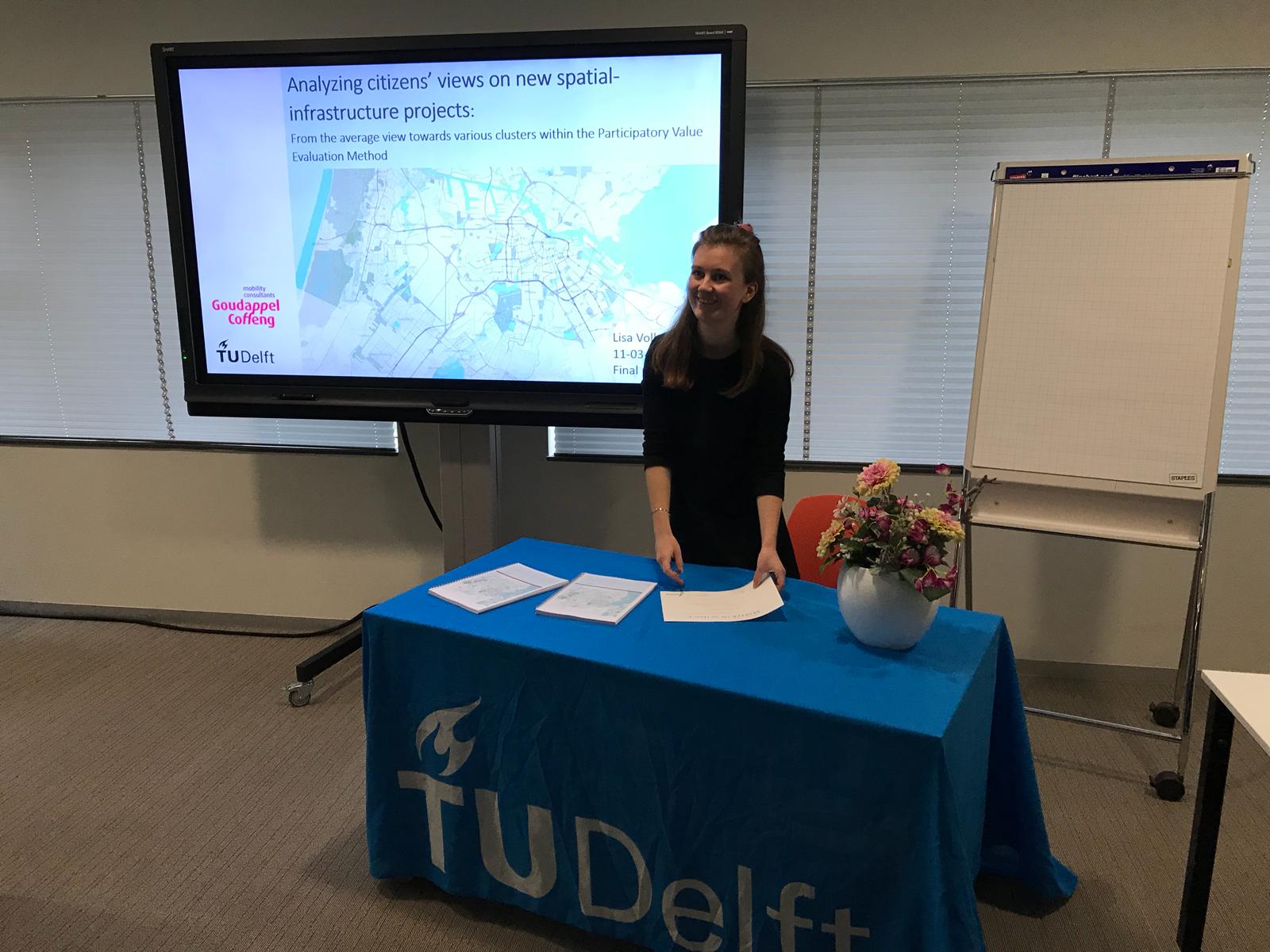The influence of residential location in PVE
Are people influenced by the location they life when participating in a PVE for transport projects? The answer is yes, according to Lisa Volberda, who graduated from her master Transport, Logistics and Infrastructure last Wednesday 11 March. In her thesis, she identified the distribution of citizens for the allocation of the public budget towards spatial- infrastructure projects, by making use of Participatory Value Evaluation (PVE).
For her thesis, Lisa made use of the dataset of a PVE experiment in the Region of Amsterdam (Vervoerregio Amsterdam). A Latent Class Cluster Analysis model was estimated to identify citizens selecting a similar combination of spatial-infrastructure projects. The results of her study found that individuals are more likely to select projects in their living area. Furthermore, individuals prefer rather a higher number of projects having low costs than one expensive project, and individuals assign high values to safety compliance projects. The results indicate that individuals do neither necessarily base their choice on quantitative attribute values, such as minutes of travel time reduction realized by a new project, nor do individuals select a combination of projects based on improvements realized by these projects for a specific travel mode. By doing experts’ interviews, this study also provides a rich reflection of the implications of the clusters identified. The desirability of the location-effect depends on the aim of the experiment. The main implication of the results is that researchers have to be aware of the strong location-effect and that future research should control for this effect.
Newsletter subscription
Do you want to stay up-to-date on the latest developments in the area of Participatory Value Evaluation (PVE), research results or do you want to test PVE yourself? Subscribe for the PVE newsletter.
